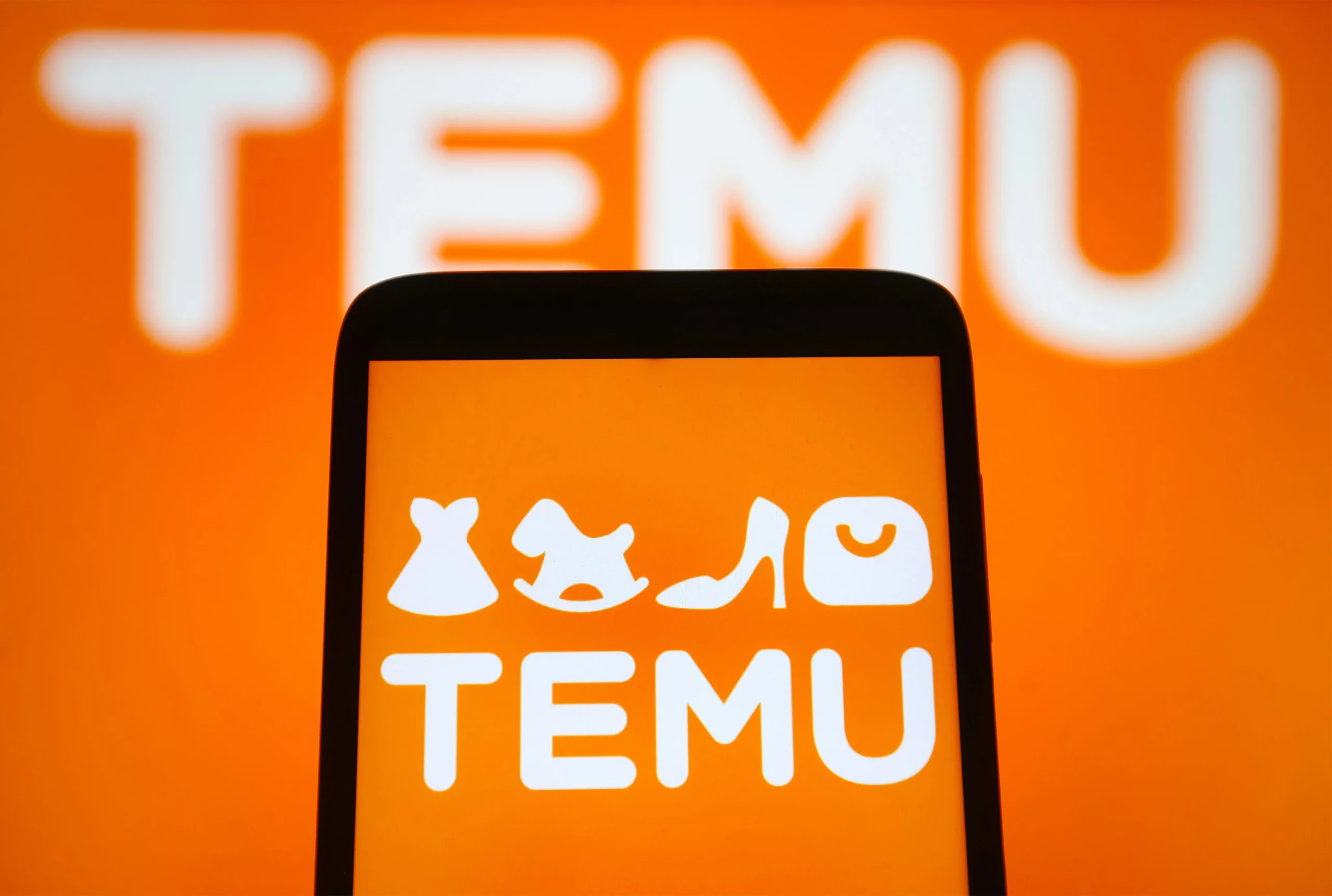Should e-commerce platforms be scrutinized for ethics and sustainability? Is there a connection between e-commerce and fast fashion? The answer is yes.
E-commerce platforms, such as Temu, have become the primary shopping destinations for fashion consumers, having a critical impact on consumer behavior. In a time where consumer choices can significantly impact the planet, it is only logical that we question the ethical and sustainability practices of e-commerce platforms.
So, what brings an e-commerce platform like Temu to the spotlight?
Even though Temu was launched in late 2022, the company’s app quickly soared to become the most downloaded shopping app in the US iOS App Store by February 2023, amassing over 50 million downloads. To emphasize this achievement, it’s worth noting that its counterparts, such as Shein and Wish, took approximately three years to reach this milestone.
An even more intriguing aspect of Temu is its adept use of psychological marketing appeals, which have the power to influence consumers’ mindsets. The brand’s widely recognized slogan, “Shop Like a Billionaire,” entices customers with the promise of acquiring top-notch products at affordable prices. However, the remarkably low prices, especially on fashion items, might raise concerns about potential exploitation in the supply chain.
With Temu’s rapid rise in popularity among Gen Z and young millennials, capturing the attention of countless consumers, it’s an ideal time to initiate a discussion about its ethical and sustainable practices.
Read: Is Killstar Ethical or Fast Fashion Brand?
What is Temu?
Temu is an online marketplace based in Boston, Massachusetts, operated by the Irish-based Chinese e-commerce company PDD Holdings. PDD Holdings, a multinational commerce group is known for working with top global manufacturers, and suppliers, and owns the agriculture platform, Pinduoduo.
Temu was founded in 2022 and it is known for its heavily discounted goods, which are mostly shipped to consumers directly from China. Its prices are among the lowest online for household goods, toys, electronics, clothing, and beauty products. Much of this is possible all thanks to the backing of its parent organization, PDD Holdings.
In just a few months of its launch, Temu has gained quite a reputation in the U.S., especially after it paid for two ads during the Super Bowl LVII.
Is Temu Ethical?
Temu as a brand is primarily involved in commerce services and doesn’t engage in the manufacturing of products. Yet, it can’t be excluded from its role in ensuring that its suppliers and vendors maintain ethical business practices.
With what is known so far, Temu operates with a strong emphasis on ethical business practices. The company has established core values and a code of conduct that vendors must adhere to. At the core of Temu’s business model are its principles of honesty, transparency, and responsible conduct.
Temu’s business model, Next-Gen Manufacturing, forms the basis of the company’s ethical commitments. This innovative approach addresses many of the issues associated with fast fashion and manufacturing in general. The model relies on improved supply and demand methods, utilizing data and timely insights into consumer preferences.
But how does this impact fast fashion and sustainability?
With the Next-Gen Manufacturing model, Temu focuses on understanding current consumer preferences, allowing manufacturers to produce more targeted goods. In contrast to traditional models involving mass production, multiple intermediaries, and extensive marketing, Temu’s model establishes a direct connection between consumers and manufacturers.
The implications for fast fashion and sustainability in the industry involve the elimination of excess inventory, a common issue with traditional manufacturing models. Following the Next-Gen model, Temu ensures minimal production waste, reducing costs and enabling products to be sold at competitive rates.
While this represents a positive response to issues in fast fashion, the question of whether Temu is entirely ethical remains partially answered.
The Next-Gen model sure does help in waste reduction during production and also excess inventory that later ends up at the shores of the ocean, but what happens to issues about unfair labor, environmental sustainability, and animal welfare in terms of how manufacturers source raw materials?
Temu’s core values reflect its dedication to fostering a culture of trust and transparency. These values, including integrity and accountability, are not just buzzwords but guiding principles that underscore the importance of fair and responsible behavior.
Temu’s comprehensive Code of Conduct acts as a blueprint for vendors, outlining their responsibilities and expectations to align with ethical business practices.
The Code of Conduct mandates that vendors comply with all applicable labor and human rights standards. This requirement ensures that workers involved in the supply chain are treated fairly, provided with safe working conditions, and afforded the dignity they deserve. Temu’s commitment to fairness extends beyond mere rhetoric, with the company implementing random inspections and audits of manufacturing facilities to ensure ongoing compliance.
In addition, Temu recognizes the environmental impact of its operations and takes significant steps to mitigate its carbon footprint. The company offsets a portion of its carbon emissions, showcasing a commitment to environmental sustainability.
Moreover, Temu prohibits merchants, contractors, suppliers, and other third parties from using hazardous chemicals in products or manufacturing facilities. This proactive stance aligns with global efforts to promote eco-friendly business practices.

Is Temu Fast Fashion?
The answer is No. Temu is not fast fashion. Although it uses a slogan that is contradictory to this stance, Temu as an e-commerce platform has put in place several measures to curb any related extremes of fast fashion.
Fast fashion typically involves mass production, quick turnover of styles, and often sacrifices ethical and sustainable practices for low-cost production. However, Temu’s business model and Next-Gen manufacturing approach challenge the traditional fast fashion model in several ways.
Is Temu legit?
Temu appears to have a positive reputation and is legit. Temu has received favorable reviews on various platforms, including a 4.6-star rating on both the Google Play Store and the iOS App Store. Users appreciate the user-friendly interface, convenience, and wide range of products available on the platform.
On Sitejabber, Temu has a 3.6-star rating from over 200 reviews. Customers have praised the platform for its diverse product offerings and excellent customer service.
Temu holds an A- rating from the Better Business Bureau. The 100% customer service response rate indicates the company’s commitment to addressing customer concerns and resolving issues promptly.
The positive ratings and reviews suggest that Temu is legit and dedicated to maintaining high standards for ethical business practices.
Best Sustainable Alternatives to Temu
ThredUP
ThredUP is a leading online thrift store that emphasizes the circular fashion economy. By providing a platform for buying and selling secondhand clothing, ThredUP promotes the reuse and recycling of fashion items. Consumers can find quality clothing at affordable prices, contributing to a more sustainable approach to fashion consumption.
Everlane
Everlane is renowned for its commitment to transparency in pricing and production. The brand provides detailed information about the cost of production and the factories where its products are made. Everlane focuses on high-quality, timeless pieces that withstand trends, encouraging a more thoughtful and sustainable approach to wardrobe building.
ASOS Marketplace
ASOS Marketplace is a curated platform within the ASOS website that supports independent brands and vintage sellers. Offering a diverse range of clothing, accessories, and more, ASOS Marketplace encourages the purchase of unique and pre-loved items. By supporting small businesses and promoting vintage fashion, this platform aligns with sustainable and ethical fashion principles.
Depop
Depop is a social marketplace that combines e-commerce with a social media-like experience. It focuses on reselling pre-owned fashion items, fostering a sense of community among users. Depop encourages the upcycling of clothing and promotes a more sustainable and interconnected approach to fashion consumption.
Read: Is Cider Fast Fashion? Or Is It Ethical and Sustainable?
Rent the Runway
Rent the Runway introduces a new dimension to fashion consumption by offering a rental model. Users can rent high-end clothing and accessories for special occasions, reducing the demand for single-use fashion items. This approach promotes a circular fashion economy and minimizes the environmental impact of occasional wear.
Poshmark
Poshmark is a social commerce platform that enables users to buy and sell secondhand clothing, shoes, and accessories. With its community-driven approach, Poshmark encourages fashion enthusiasts to participate in sustainable shopping practices by extending the lifecycle of fashion items through resale.
Vinted
Vinted operates as a peer-to-peer platform for buying, selling, and swapping secondhand fashion. It emphasizes a sense of community and collaboration among users, promoting the idea that pre-loved items can find new homes. Vinted contributes to reducing fashion waste and encourages sustainable fashion choices.
Frequently Asked Questions
Who is behind the ownership of Temu?
Temu is operated by PDD Holdings, a multinational conglomerate with various e-commerce platforms under its umbrella. PDD Holdings is known for its flagship platform, Pinduoduo, a popular social e-commerce app in China.
Can I trust Temu with my credit card information?
Your credit card information is encrypted and protected on Temu’s platform. They employ secure payment processing methods to ensure that your financial data remains private and safe from unauthorized access.
How does Temu ensure the protection of customer data?
Temu asserts that it uses advanced security measures to safeguard customer data. This includes the use of encryption and other industry-standard protocols to prevent data breaches and ensure privacy.
Are the working conditions for Temu’s supply chain known to be fair?
The specifics of working conditions in Temu’s supply chain are not publicly detailed. However, it’s important for e-commerce companies to conduct regular audits and ensure compliance with labor laws to maintain ethical standards.
What are customer experiences with Temu in the recent 2023 reviews?
Recent reviews in 2023 indicate a mixed customer experience with Temu. Some users praise the low prices and variety of products, while others have raised concerns about shipping times and product quality.
Which corporate social responsibility practices does Temu engage in?
Temu has not extensively publicized its corporate social responsibility initiatives. Companies in this space commonly engage in environmentally sustainable practices, charitable giving, and ethical sourcing to support social responsibility.






